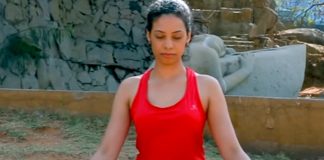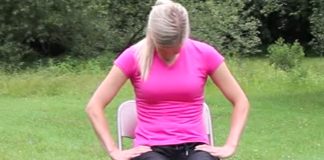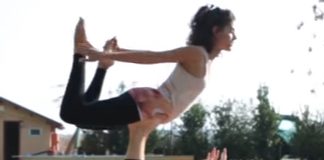Yoga has a multitude of benefits. It facilitates weight loss, helps metabolism and hence increases appetite, there are psychological and meditative benefits as well. There are scores of yoga postures and new variants are being conceived and practiced with each passing year. Inversion yoga poses are particularly beneficial because they help facilitate easier blood circulation in the body, the postures help the cleansing of the lymphatic system which is effectively the lymph nodes getting rid of the toxins extracted from the cells, the gastrointestinal system undergoes detoxification and the inversion postures definitely strengthen the core muscles that have a plethora of benefits.
There are many inversion yoga poses. Some are easy and some considerably complicated. Here are some of the inversion yoga poses that have the maximum impact.
1. Feathered Peacock Pose or Pincha Mayurasana
This is also known as elbow or forearm balance. You need to balance your entire body while resting it on half of your arm, from the elbow to the hand with the forearms being the foundational base. You should try this pose first with the help of a wall. Poise yourself upside down aligning against the wall. You can use the wall to lean on and you can even place your ankles, firmly setting them at a convenient point on the wall so you can get substantial support to balance.
2. Handstand Pose or Adho Mukha Vrksasana
The handstand pose is similar to the feathered peacock pose. The difference is instead of balancing your entire body upside down on your forearms, you do it on your hands. The two don’t have any particular order of complexity as both are difficult. You can try either of the two before the other. It is better to try supported shoulder stand before handstand, feather peacock and headstand for that matter.
3. Shoulder Stand
The shoulder stand is easier than the other three. You must be aware of bridge. Although there are other ways to get started with the shoulder stand, bridge is more suited for those who are not experts at inversion yoga poses. Take a bridge position and then gradually raise your lower part of the body. Raise your legs, hips and waist upward. The objective is to turn your entire body upward while it rests on the upper back, essentially the shoulder. You can use your hands by your side, forming a clasp to hold your body up. You should later try to balance your body without the support of your hands.
4. Headstand or Supported Headstand
This pose is also known as Salamba Sirsasana, is one of the most challenging inversion yoga poses, not because of its complexity but owing to the fear most people have of exerting the bodyweight as a pressure on the head. Headstand is as easy as the other poses discussed here. All it takes is amazing core strength and balance.
47 Most Famous Motivational Quotes of All-Time
49 Greatest Love Quotes
37 Inspirational Quotes that Will Change Your Life






























